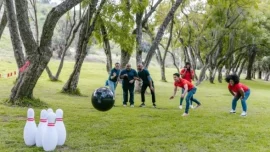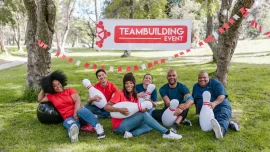While in everyday life, people tend to use the terms skills and abilities interchangeably or synonymously, the fact is that these are two entirely different terms.
Consider this:
You walk around your workplace and ask the employees if they know how their salary transactions are made. Almost all of them would give yes as the answer because in the digital era we live in, people are aware of financial transactions. Half of them might know details like the company account from which the salary is debited and credited to each employee’s salary account. However, only a few would know the exact process, and even fewer people (most likely those from the HR and Finance department of your organization) would know the entire system in and out, from the process at the bank’s end to the taxes and other deductions in each salary slips.
The first few sets of people have the ability to perform such financial transactions; however, the later few have the skills and technical know-how to do so.
Scroll down and continue reading this blog to know the difference between skills and abilities.
Why Understand Skills and Abilities?
Before differentiating skills vs abilities, it is important to know why learning about the difference is critical for recruiters and hiring professionals. First, it is crucial to determine personnel training and development needs. Understanding what they lack to improve at their job is the first step in developing your personnel, which is one of the crucial factors in keeping them on board. One of the most vital things you can do to evaluate your employees’ talents and identify any gaps is to do a skills gap analysis. This should be done not just when they first enter the workforce but also as they continue to work for the company.
Recognizing where there are skills and abilities gaps will enable businesses to capitalize on strengths, match employees with pertinent responsibilities, and, equally importantly, keep them out of positions for which they are not a good fit.
What are Skills?
Something that embodies knowledge, competency, and the capacity to carry out a task is called a skill. They can be learnt through education but also acquired through real-world and professional experience. Since talents can refer to things like dexterity, physical abilities, and intelligence, they are frequently something that some people will be able to acquire more quickly than others. However, in the context of employment, skills mostly pertain to your ability to do a particular function.
What are Abilities?
A remarkable talent to do anything is called an ability. You are born with it and are genetically blessed with it. What you can build and use your skills. Ability is tougher to develop from birth. Take the renowned swimmer Michael Phelps as an example. He inherited not only his height and foot size but also significant and subtle characteristics like his torso measurement, lung capacity, and lactic acid threshold. His abilities focused on sharpening his turns, timing, and racecraft.
Thus, having the potential to perform something is what ability means. A skill is the capacity to do action well. For example, Michael is a natural swimmer but worked hard to become a champion.
Skills vs Abilities
We now understand what skills and abilities include. Here are some other ways to understand the difference between skills and abilities:
- While skills are learned or acquired, abilities are inherent or natural. Despite your height, athleticism, and superb hand-eye coordination, you possess the capabilities necessary to play basketball.
- A skill is the capacity to act excellently, whereas ability is the capacity to act—for instance, the power to run and the ability to run far or quickly.
- The word “ability” merely denotes a person’s potential. The ability of a person to accomplish something incredibly effectively is referred to as skill. E.g. You’re a talented artist, but the art you practice has effects that go above and beyond what you could achieve naturally.
Employers can benefit from being aware of the apparent distinction between skills vs abilities. While abilities are innate, skills may be learnt and utilized to identify gaps that training and mentoring can assist in building and overcoming. Therefore, there are many advantages to determining a person’s innate talents that can be developed into valuable capabilities.
Discover Assessments make distinguishing between a candidate’s skills and abilities easy. Our DISC-based assessments measure a range of skills like a person’s aptitude, technical proficiency, cultural unity, etc. It provides insight into whether they can adapt to new difficulties and whether they would be an excellent fit to lead change within your organization.
Don’t hesitate to contact us if you want to learn more.






